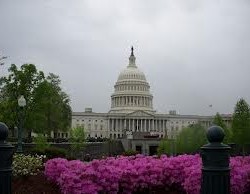How Do We Close Crony Capitalism's Tax Loopholes?

 Whether you’re a limited government or big government advocate, whether you believe in less taxes or more taxes, whether you’re a procyclical deficit hawk, a counter-cyclical deficit dove, or a full-employment Modern Monetary Theorist (MMT), here are some tax loopholes we can all hate.
Whether you’re a limited government or big government advocate, whether you believe in less taxes or more taxes, whether you’re a procyclical deficit hawk, a counter-cyclical deficit dove, or a full-employment Modern Monetary Theorist (MMT), here are some tax loopholes we can all hate.
Citizens for Tax Justice recently reported that over $27 Billion in stock options were given tax breaks over the last three years. The top beneficiaries were executives from Apple, Facebook, and J.P. Morgan Chase. I recently wrote about Too Big To Fail Banks (TBTF), and noted that without the “riskless premium” the TBTF banks wouldn’t even be profitable. Pretty much the definition of crony capitalism is giving tax breaks to TBTF banks' stock holders.
On aGREATER.US where independents’ opinions are given equal weight with conservatives’ and liberals’ ratings, closing a different slimy tax loophole, Stop Subsidizing Corporate Raiders, has a stellar 92% positive tripartisan rating. Is this reflective with that of society? I can’t find any polling data on this topic. I guess no one else cares to spend money obtaining that data.
“Here’s the playbook. Buy the company at a distressed price, load it up with as much corporate debt as possible then pay out the cash as a special dividend to the new owners (yourself). Go ahead, take inordinate risk with other people's jobs and the local economy. You made a gigantic profit. It’s good to be the 1%. And you still make a gigantic profit even if you fail at turning the company around. Sweet. We need to close the loopholes in the tax code that almost guarantees a private equity firm can raid a company and make a staggering profit with less risk than the original owner. It would not be so if there were a cap on the deductibility of corporate debt and if the carried interest loophole were closed. Then a deal will succeed or fail on its merits. For more information read the fine article by James Surowieki “Private Inequity” originally published in The New Yorker.”
Hmm, remember that riskless premium the TBTF banks enjoy? Aren’t they the ones writing loans to these corporate raiders? Have either the bank or the raider made any valuable physical product or service, yet?
Which leads to another interesting idea on aGREATER.US, “Tax the Takers More Than The Makers.” It has a tripartisan rating of 93%. Is this reflective with that of society? I can’t find any polling data on this topic. I guess no one else cares to spend any money obtaining that data, either. Here’s a quote from Richard Fobes, author of "Ending The Hidden Unfairness In U.S. Elections" and "The Creative Problem Solver's Toolbox" who submitted the idea…
“The U.S. business tax system is upside down. Banks and insurance companies and law firms are ‘taker’ businesses that just shift ownership of things that already exist, and they use campaign contributions to bribe Congress into giving them tax breaks and low tax rates. In contrast, family farmers, manufacturing businesses, small software-development companies, and single-location restaurants are ‘maker’ businesses that create things of value that previously did not exist, and they struggle to survive under the burden of excessively high taxes.”
You can read more about Tax the Takers More Than The Makers here.
How Do We Close Crony Capitalism's Tax Loopholes?


